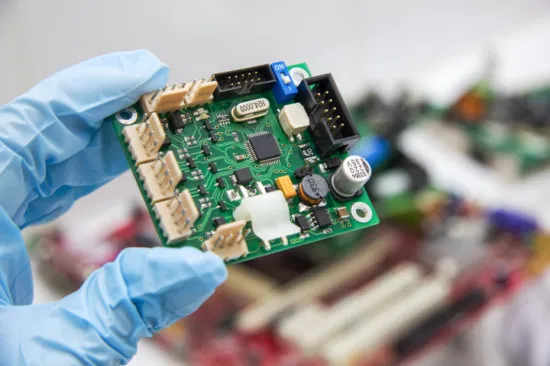185.63.263.20: Why This IP Address Matters in Cybersecurity

Knowing the ins and outs of IP addresses is more important than ever in the modern internet world. The IPv4 address 185.63.263.20 is one such identifier; it is a distinctive marker for devices in networks all around the world. This seemingly random string of digits is really rather important for our ability to connect to different services and websites and for the smooth functioning of our internet communication.
But how is it all meaningful? An IP address such as 185.63.263.20 is irrelevant. Knowing more about this particular identifier can provide light on its relevance in cybersecurity and beyond, which is important because cyber dangers are growing daily. The interesting and far-reaching ramifications cover everything from effectively routing traffic to securing sensitive information.
So let’s dive deeper into the world of IP addresses and unravel just why understanding 185.63.263.20 could be pivotal for your online safety and security!
TRENDING All About the IP 185.63.253.300
What is 185.63.263.20?
One way to identify a device on a network is with its IPv4 address, which is 185.63.263.20. When two devices are trying to talk to each other via the internet, this particular address is crucial.
Being in the Class B family, it has larger host capacity than Class C varieties. The structure’s four octets, which can take on values between zero and twenty-five, allow for effective connection and routing.
By deciphering this IP address, organisations may gain valuable insights on a range of online activities and enhance their resource management capabilities. Locations associated with certain users or services may also be more easily identified with its help.
In today’s digital world, 185.63.263.20 plays a crucial role in facilitating seamless device connections, which in turn improves user experiences across many platforms and guarantees smooth network connectivity.
The Role of 185.63.263.20 in Cybersecurity
An important part of cybersecurity is the function of the IP address 185.63.263.20. It allows devices to communicate and transmit data securely within networks by acting as an IPv4 address.
Attackers can get unauthorised access or disrupt services by targeting certain IP addresses, such as 185.63.263.20. This is why it is critical for organisations to monitor these addresses if they want to safeguard their assets.
Experts in cybersecurity use technologies that examine data sent by this IP address in order to spot potential dangers before they escalate. They can identify suspicious trends that might indicate an assault by monitoring activity associated with 185.63.263.20.
Additionally, organisations may better safeguard themselves from hidden cyber dangers by implementing strong security measures that are customised to their unique needs, which is made possible by knowing how this address interacts with other web resources.
How Hackers Exploit 185.63.263.20
An IP address like 185.63.263.20 is a common target for hackers looking to exploit security flaws in networked devices. They can coordinate assaults to get unauthorised access if they find this address.
Once in, hackers may cripple systems with malware or ransomware and demand money to restore them. They steal sensitive information associated with that IP address by tricking consumers into divulging it through methods like phishing emails or harmful websites.
With the geolocation data linked to 185.63.263.20, fraudsters may better target their attacks to individual users based on their location-specific tendencies or behaviours.
By learning how these strategies function, organisations may better protect their networks by identifying intrusion indicators associated with this specific IPv4 address.
Types of IP Addresses
Multiple sorts of IP addresses exist, each with its own specific function. A device can establish a direct connection to the internet with a public IP address, which is unique worldwide. These addresses allow for the exchange of data across networks all around the globe.
Private IP addresses, in contrast, are only useful for use inside restricted networks. They aid in security by preventing unauthorised parties from accessing internal messages as they are not routable over the internet.
Web hosting and email servers rely on static IPs since they do not change over time. Regular home users who don’t need a fixed address might benefit from dynamic IPs, which vary frequently and are provided by DHCP servers as needed.
Internet Protocol addressing has two variants, IPv4 and IPv6. Despite IPv4’s continued usage, improvements in its address space necessitated the creation of IPv6, which will be necessary for the proliferation of networked devices in the future.
Protecting Your IP Address from Cyber Threats
Given the state of the internet today, hiding your IP address is more important than ever. Constantly shifting cyber attacks frequently aim for the most vulnerable points: individual devices.
The usage of a Virtual Private Network (VPN) is one efficient way. A virtual private network (VPN) hides your online activity from prying eyes by obscuring your IP address. Using the internet is like donning a disguise.
Additionally, firewalls are crucial. By separating your device from malicious communications, they protect it from possible invaders. Firewalls, whether software-based or hardware-based, must be operational on your network.
Another important thing to remember is to update your program regularly. Cybercriminals could exploit security holes that many upgrades fix. Staying ahead of potential dangers is possible with regularly updated systems.
Be wary about giving out too much personal information on the internet. Protecting your IP and sensitive data from snoops is as simple as being knowledgeable about phishing attempts and questionable websites.
Best Practices for Securing Your IP Address
Protecting your IP address is very important in the modern internet world. A strong firewall should be installed first to prevent unauthorised access. As the initial line of defence, a reliable firewall checks all incoming and outgoing data packets.
Another way to improve privacy is to use a Virtual Private Network (VPN). Virtual private networks (VPNs) encrypt your data transfer across the internet, making it more difficult for hackers to monitor your online movements.
One way to keep all of your connected devices secure is to update their software regularly. Security patches that protect software from newly discovered risks are a common component of software upgrades.
If you can, use complex passwords and turn on two-factor authentication. Because of this additional safeguard, it is far more difficult for unauthorised individuals to gain access.
Keep an eye on the network’s activities to spot any suspicious patterns quickly. In order to stop such breaches before they become big problems, early detection is crucial.
Conclusion
In today’s digital world, knowing how IP addresses work, such as 185.63.263.20, is essential.
In the context of online device communication, these numbers are crucial; they are more than just identifiers.
Understanding the purpose of IP addresses can assist people and organisations in safeguarding data more efficiently in the face of ever-changing cyber dangers.
Address analysis provides valuable data that help improve targeted advertising strategy and user experience.
Recognising possible vulnerabilities linked to individual IPs and implementing appropriate safeguards is proactive cybersecurity.
If you take the time to learn about these aspects, you can be certain that your information will be protected and that your online interactions will go more smoothly.
Also Read : Understanding 185.63.2253.200
FAQS
What is an IPv4 address?
An IPv4 address is a unique numerical identifier assigned to each device that communicates on a computer network using the Internet Protocol (IP). It allows devices to send and receive data across the internet or local networks.
How does 185.63.263.20 function in networking?
This IP address uniquely identifies a device within a network, enabling proper routing of internet traffic and ensuring data flows correctly between devices.
Can hackers use any IP address?
Yes, hackers can exploit any IP address if the organization responsible for it fails to implement adequate security measures. Unsecured IP addresses are vulnerable to various cyber threats.
What steps should I take if my IP has been compromised?
If your IP address has been compromised, you should immediately contact your internet service provider (ISP) for assistance, change the passwords of any linked accounts, and consider using a virtual private network (VPN) or proxy to help protect your identity online.
Are all Class B addresses safe from threats?
Not necessarily. While Class B addresses offer a balance between the host capacity of Class A and the manageability of Class C, security does not depend on IP class. All network devices—regardless of address class—must be properly secured against potential threats.






